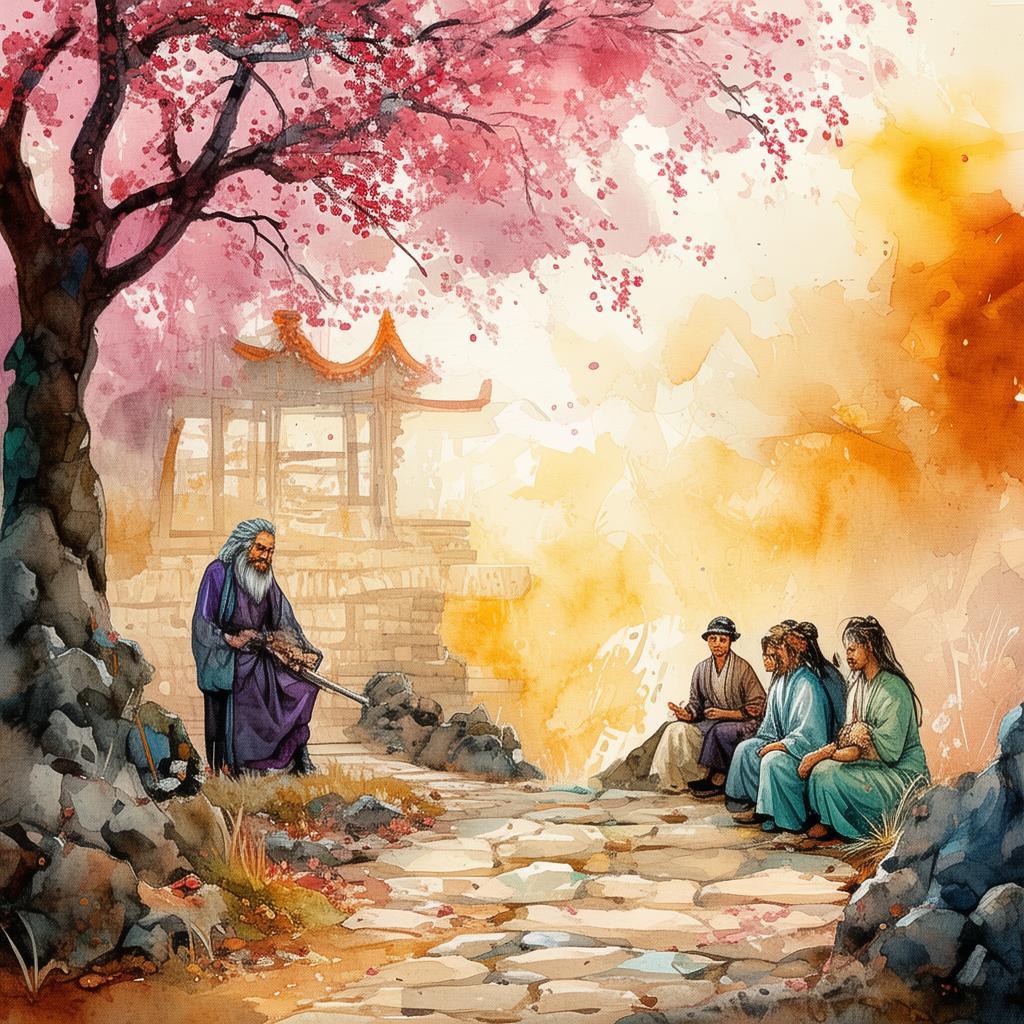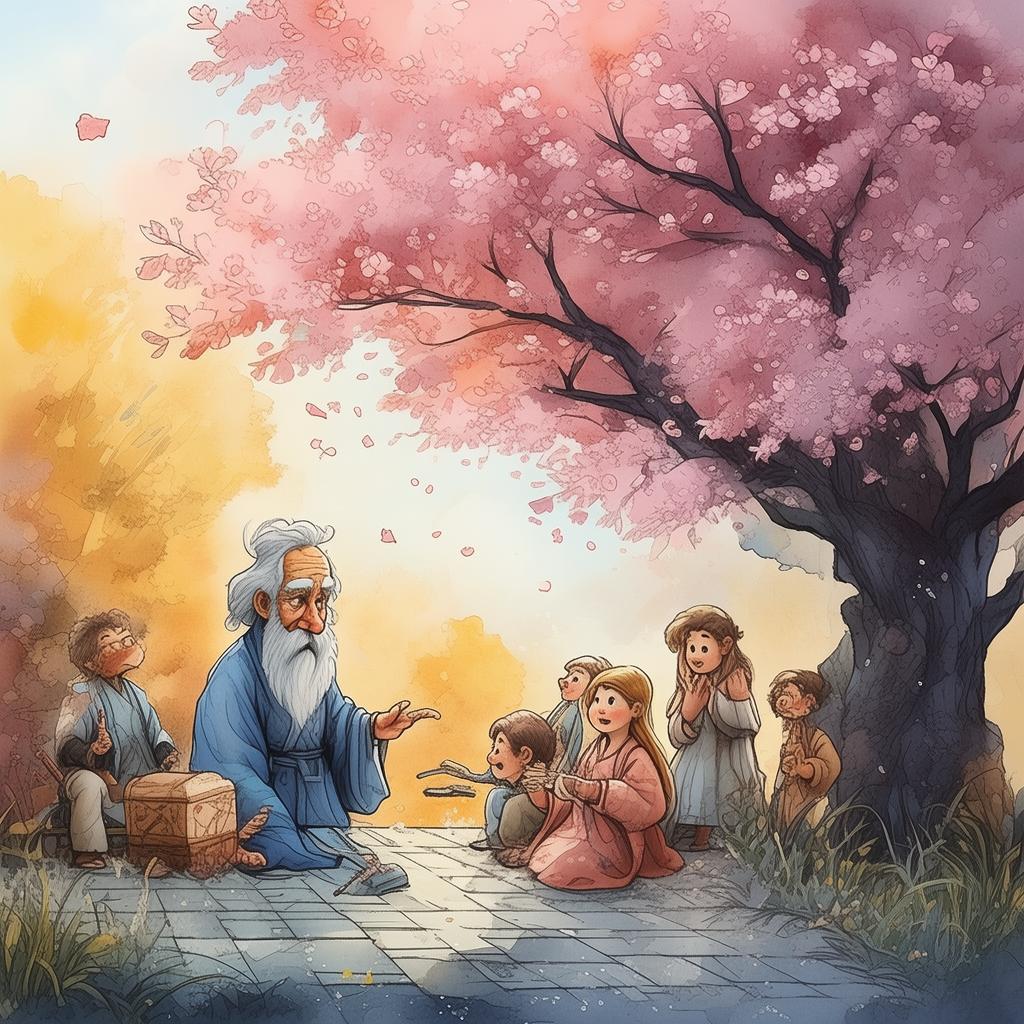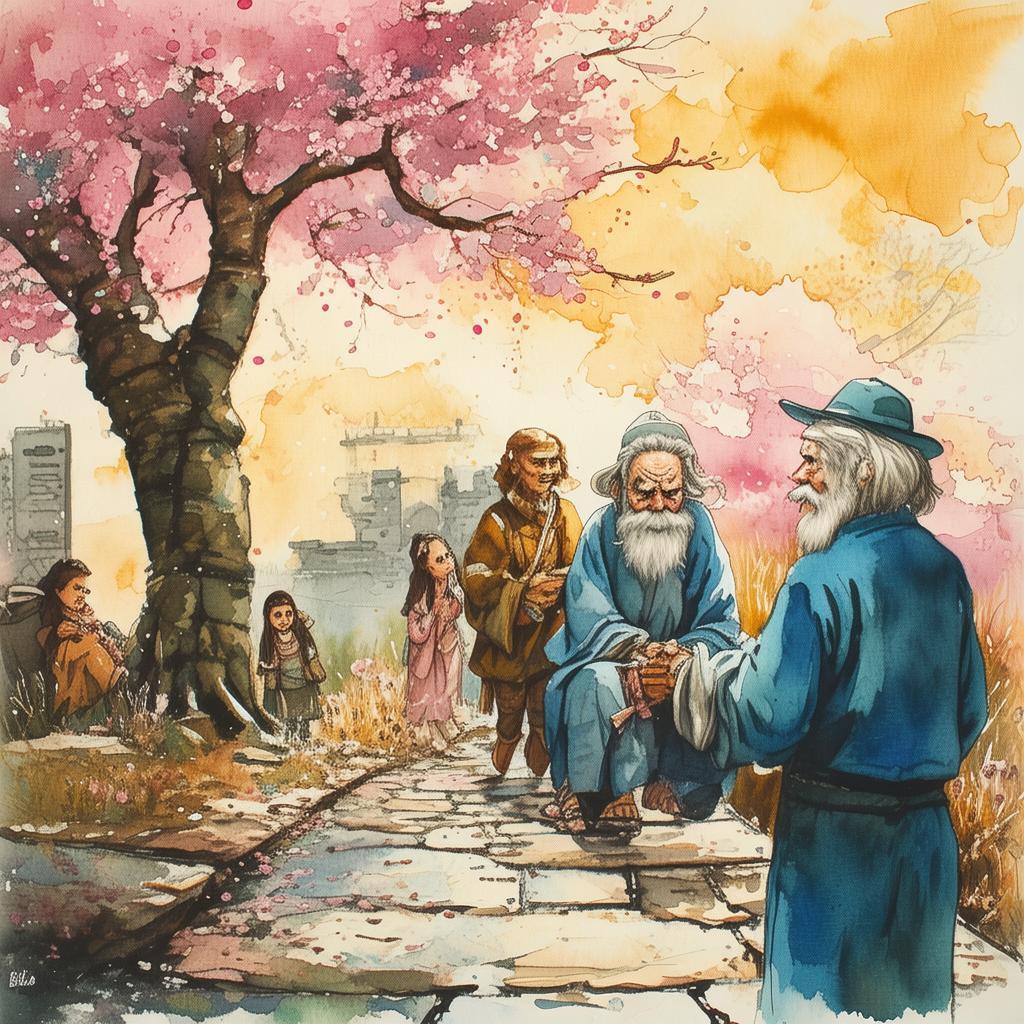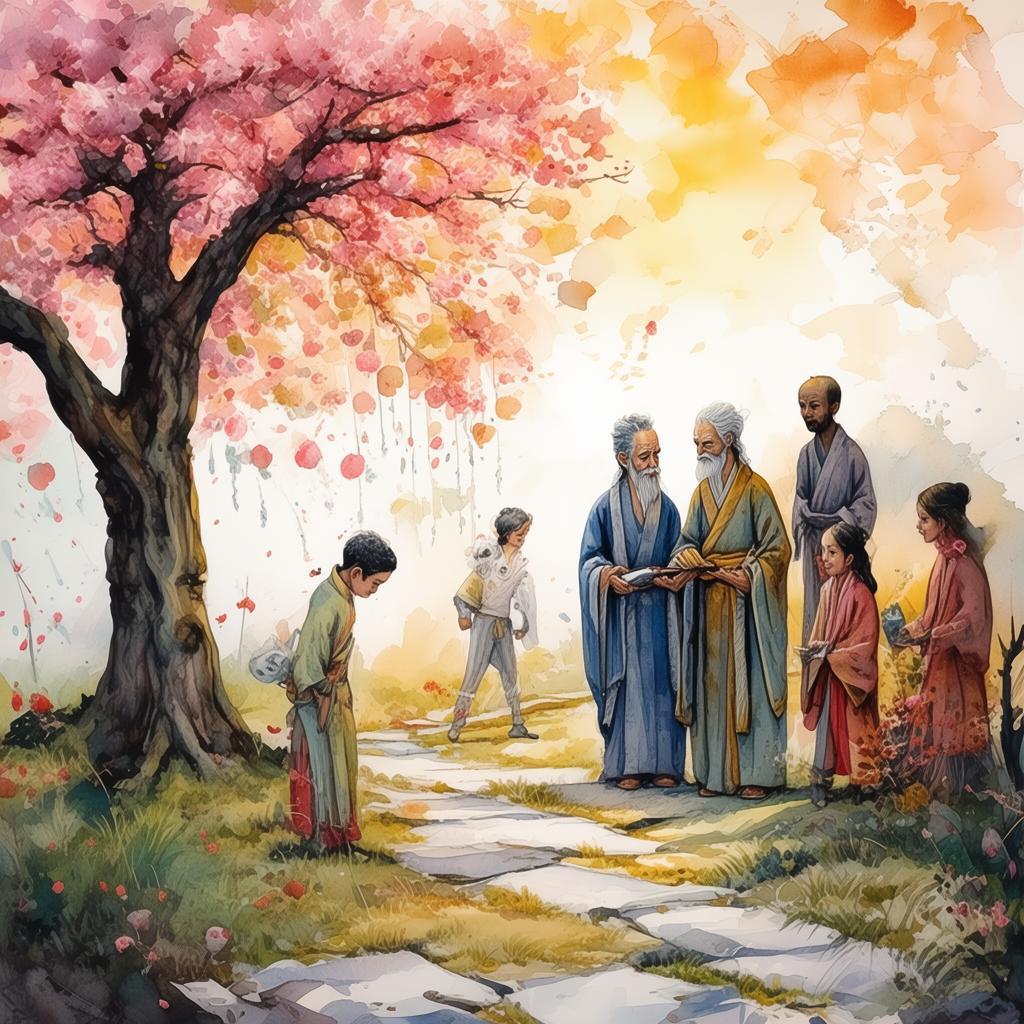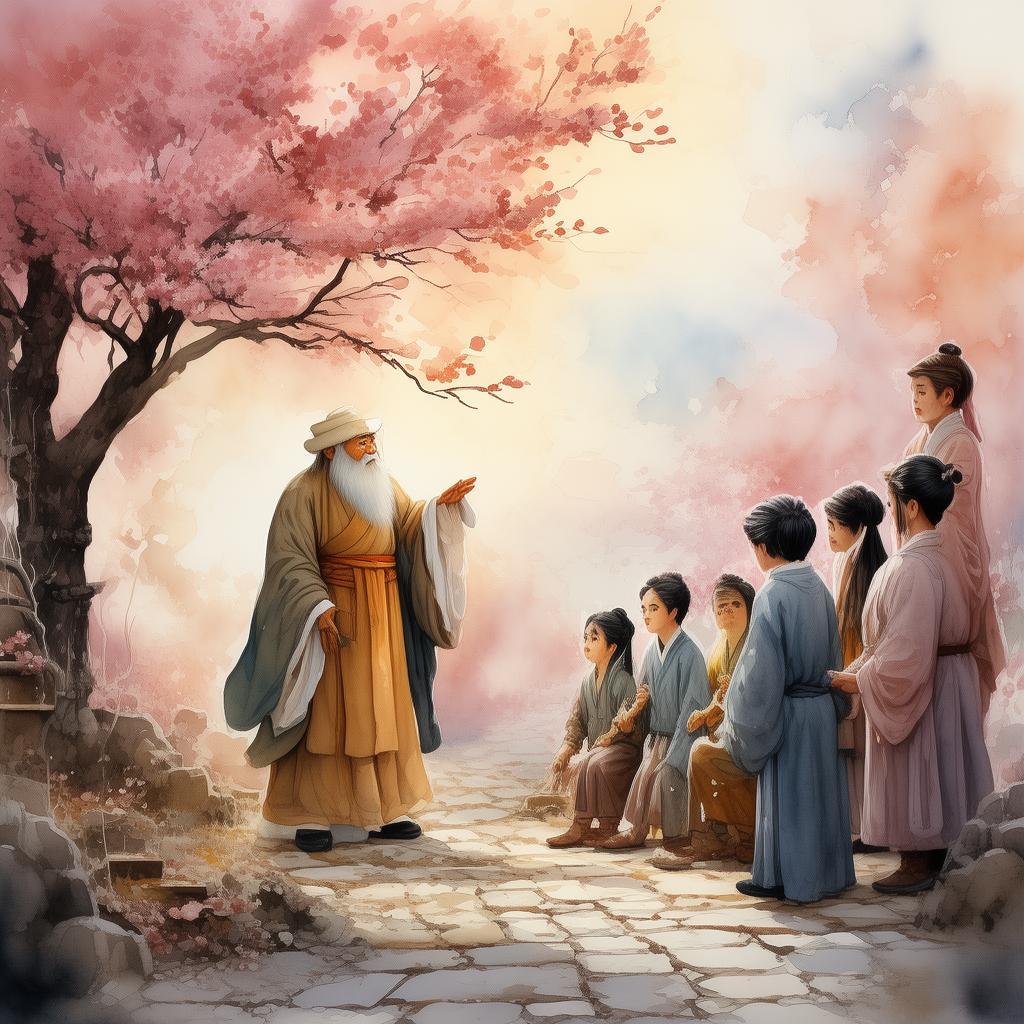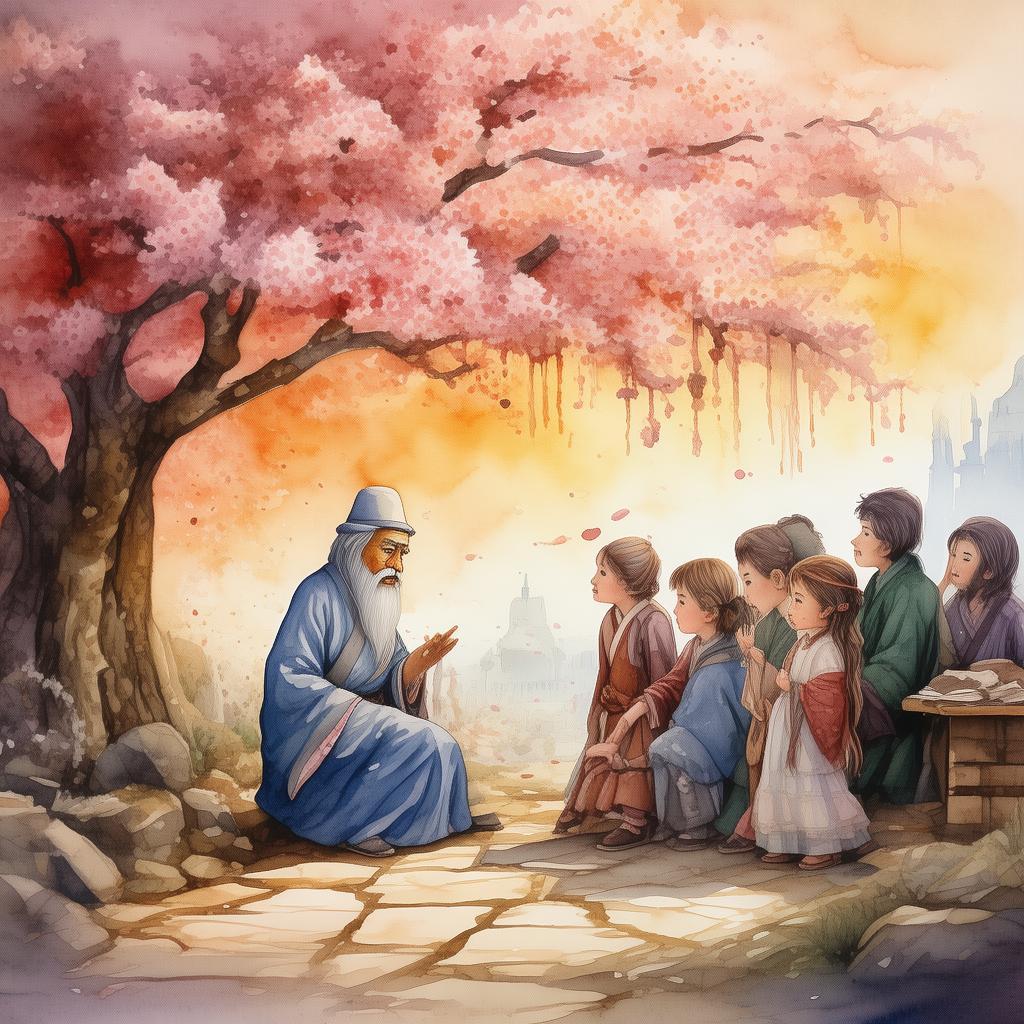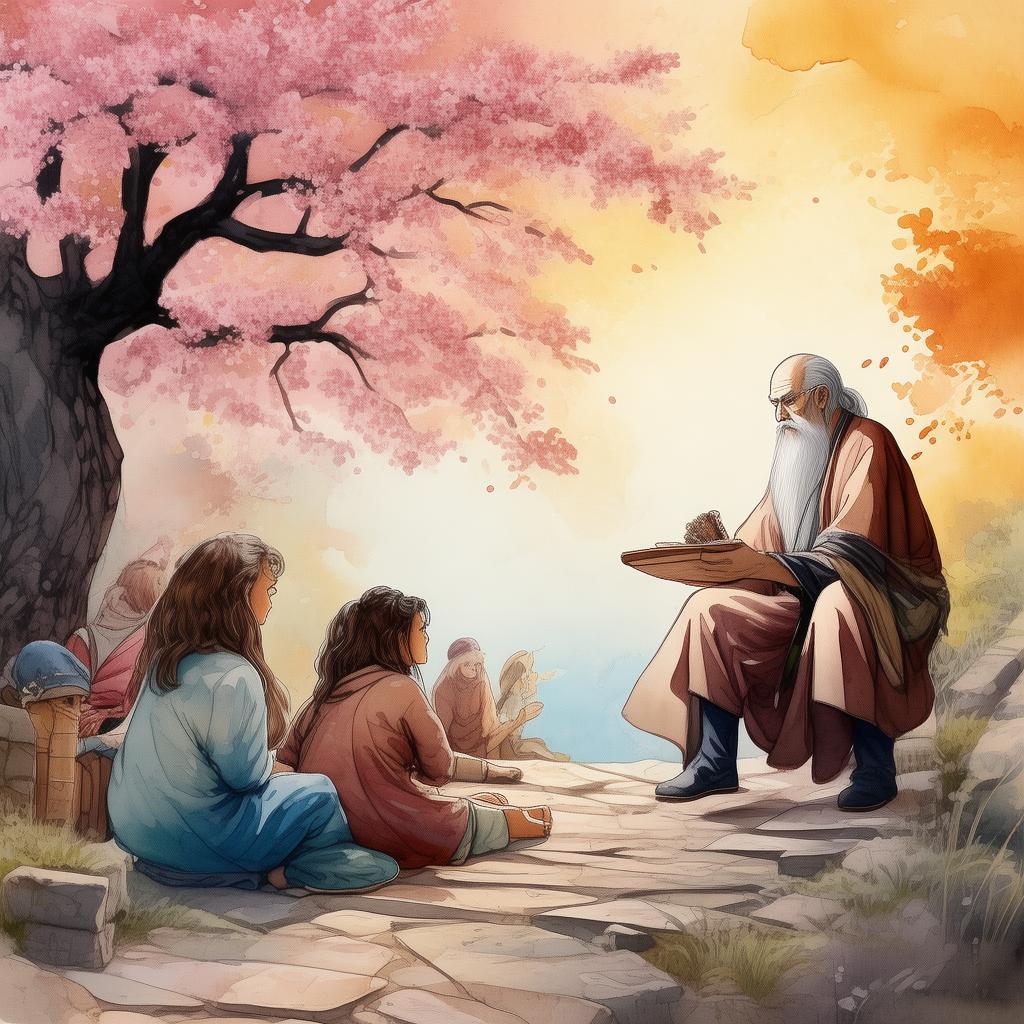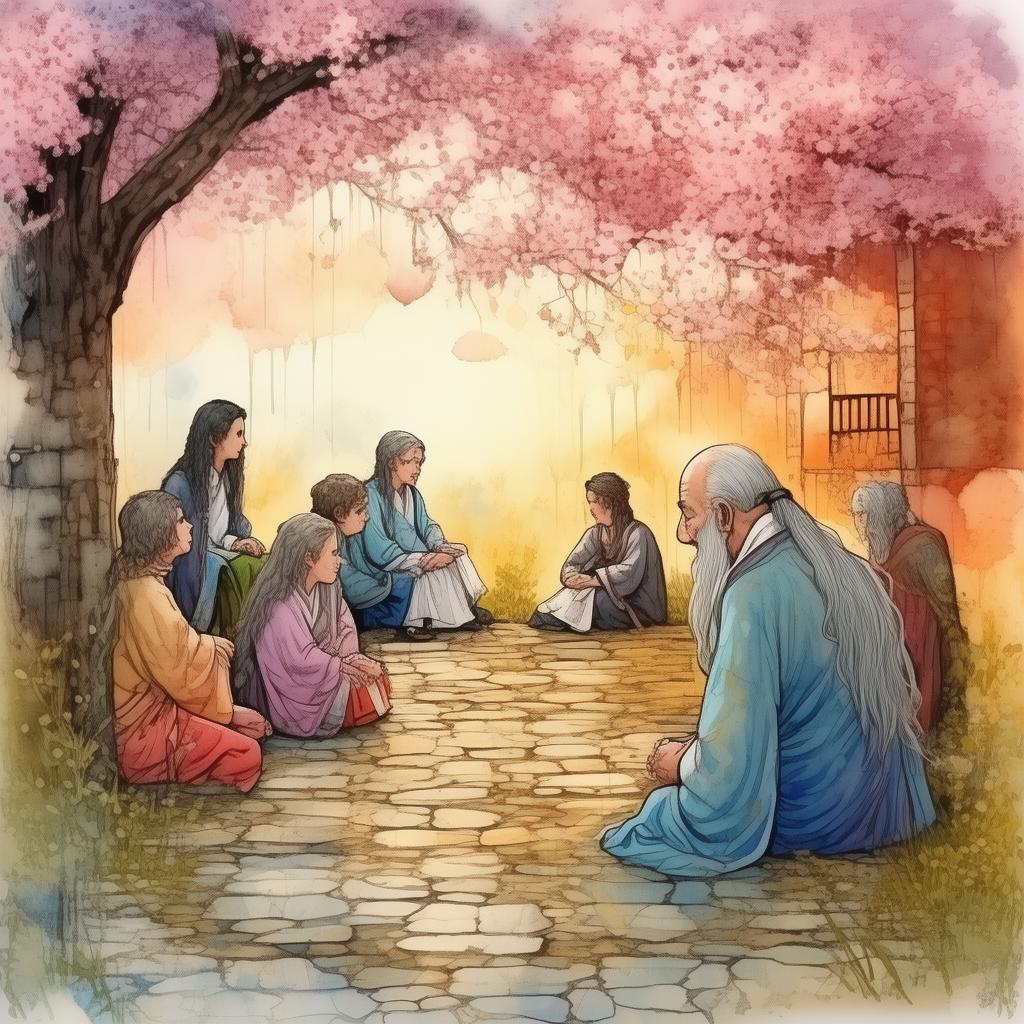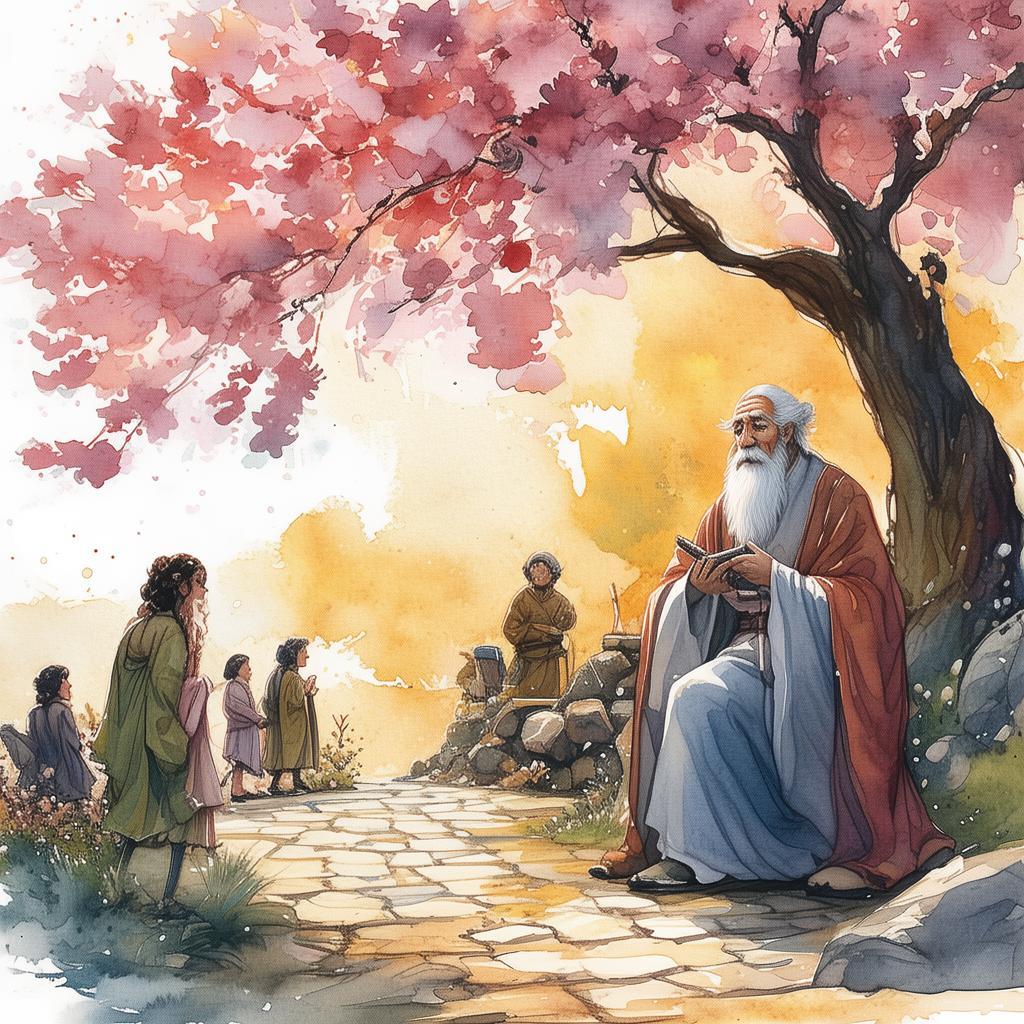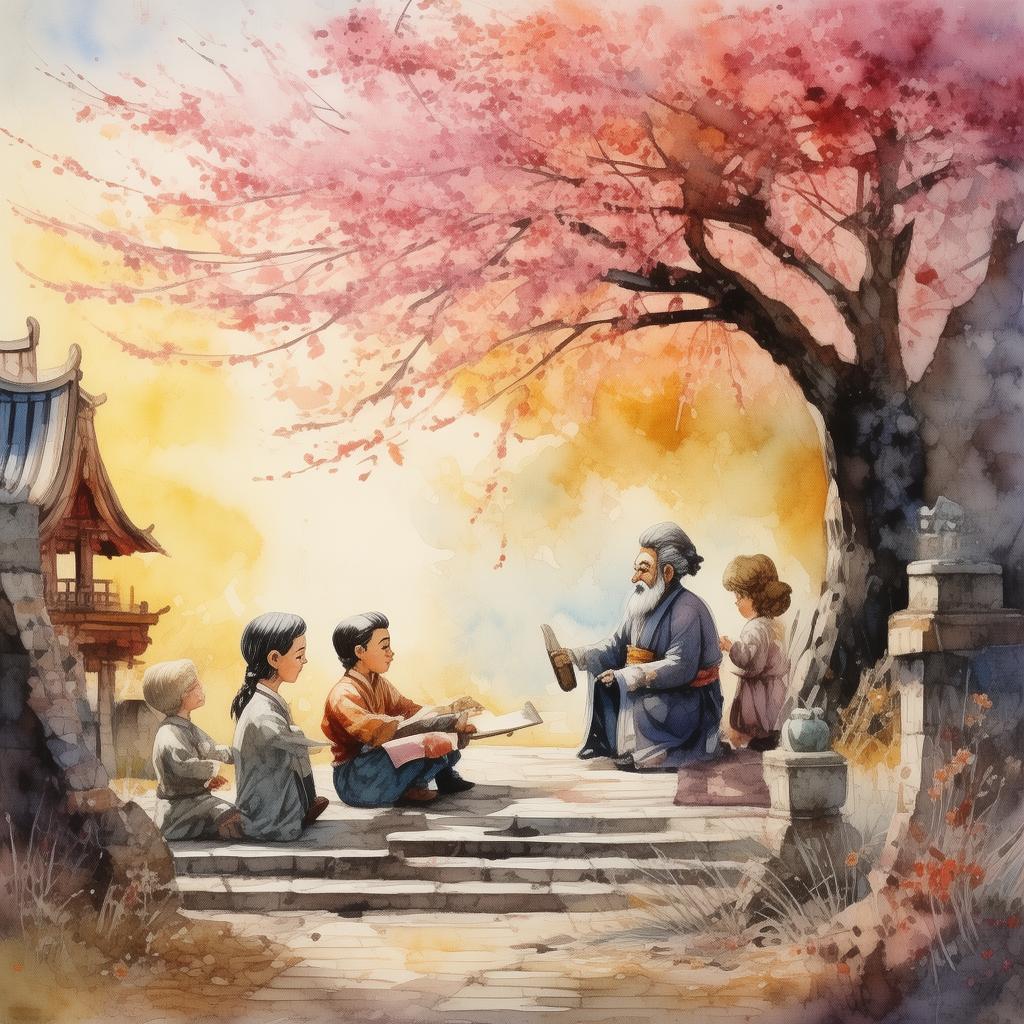The Bamboo Whisperer: A Journey of Words and Truth
In the remote mountains of ancient China, there stood a serene bamboo grove, shrouded in mystery and whispering secrets only the most discerning ears could hear. In this grove, there lived a young scholar named Liang, whose life was dedicated to the pursuit of knowledge. His days were filled with the meticulous copying of ancient scrolls and the study of ancient wisdom. But Liang was no ordinary scholar; he was on a quest to discover the meaning behind an ancient saying, one that had been lost to time and forgotten by many.
The saying, "Beneath the bamboo, the secret of the wandering words," had intrigued Liang since his childhood. His father, a wise and scholarly man, had often spoken of it in hushed tones, hinting at a profound truth hidden within the bamboo. Liang's curiosity was piqued, and he resolved to find the secret, convinced it held the key to understanding the universe itself.
One crisp autumn morning, as the sun's first rays filtered through the bamboo canopy, Liang ventured deeper into the grove than ever before. He followed the winding paths, his footsteps barely making a sound, until he reached a small clearing. In the center of the clearing stood an ancient, gnarled bamboo tree, its roots exposed and twisted, as if trying to reach the heavens. It was there that Liang discovered a hidden compartment within the tree, carved with intricate carvings that seemed to whisper ancient truths.
Inside the compartment lay a scroll, bound with a thread that glowed faintly in the dim light. Liang carefully unrolled the scroll and found it to be an ancient text, written in a language long forgotten. The scroll spoke of a powerful saying that could change the world, but it was not the saying he had been searching for. Instead, it spoke of "Beneath the bamboo, the secret of the wandering words," and how the words held the power to reveal the deepest secrets of the heart and mind.
Liang was elated. The scroll had revealed the path he must take to uncover the truth behind the saying. He knew that the words "wandering words" referred to those that were not spoken but rather carried on the wind and the whispers of the bamboo. To understand their secret, he would have to traverse the mountains, visit ancient temples, and converse with wise sages who had dedicated their lives to the study of language and the heart.
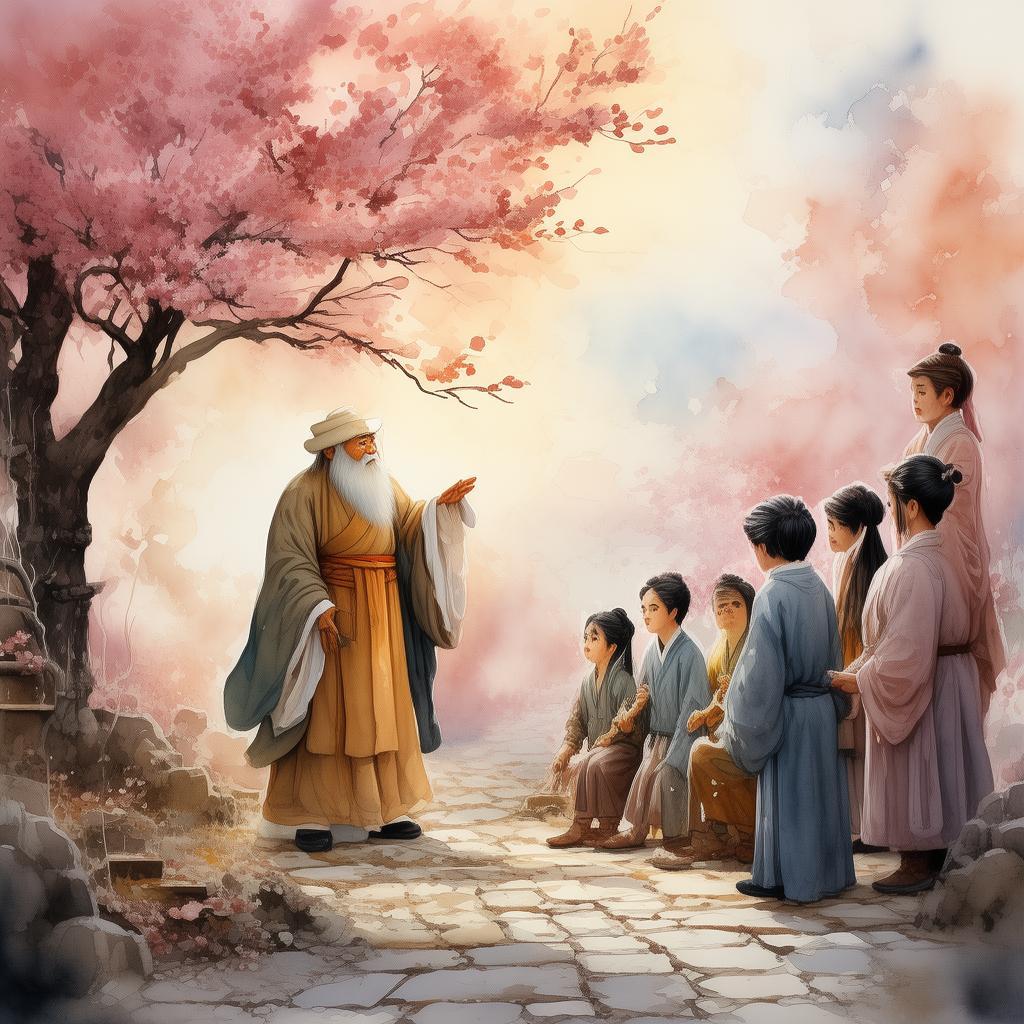
Liang's journey was long and arduous. He crossed rivers, climbed steep mountains, and survived harsh winters. Along the way, he met many who claimed to have the secret of the wandering words, each with a different interpretation and a tale of their own. Some spoke of the words as a reflection of one's true self, while others believed they held the power to change one's destiny.
One such sage, an old man with eyes that seemed to pierce through the soul, told Liang a story. "Long ago," he began, "there was a king who sought to know the secret of the wandering words. He traveled far and wide, seeking out the wisest of men. In the end, he discovered that the secret was not in the words themselves, but in the act of listening. For it is through listening that we understand the unspoken truths of others and the silent whispers of our own hearts."
Liang pondered the sage's words and realized that his quest was not about finding a hidden secret, but about learning to listen and understand the world around him. He began to see the wisdom in every conversation, in the rustling of the bamboo leaves, and in the stillness of the forest. He learned that the secret of the wandering words was a reminder to be present, to listen deeply, and to understand the unspoken truths that lie beneath the surface.
As the seasons changed and the year drew to a close, Liang returned to the bamboo grove, his heart filled with newfound wisdom. He placed the scroll back in the hidden compartment of the bamboo tree, knowing that the secret would be there for all who sought it. With a newfound appreciation for the power of listening and understanding, Liang continued his life as a scholar, but this time with a greater appreciation for the world around him.
And so, the tale of the bamboo whisperer spread far and wide, a testament to the power of listening and the truth that lies beneath the whispers of the heart. The saying "Beneath the bamboo, the secret of the wandering words" became a guiding principle for all who sought to understand the deeper truths of life.
In the end, Liang realized that the true secret of the wandering words was not a hidden truth to be discovered, but a reminder to be present, to listen, and to understand the unspoken truths that surround us. And with this understanding, he found the peace and fulfillment he had always sought.
✨ Original Statement ✨
All articles published on this website (including but not limited to text, images, videos, and other content) are original or authorized for reposting and are protected by relevant laws. Without the explicit written permission of this website, no individual or organization may copy, modify, repost, or use the content for commercial purposes.
If you need to quote or cooperate, please contact this site for authorization. We reserve the right to pursue legal responsibility for any unauthorized use.
Hereby declared.
